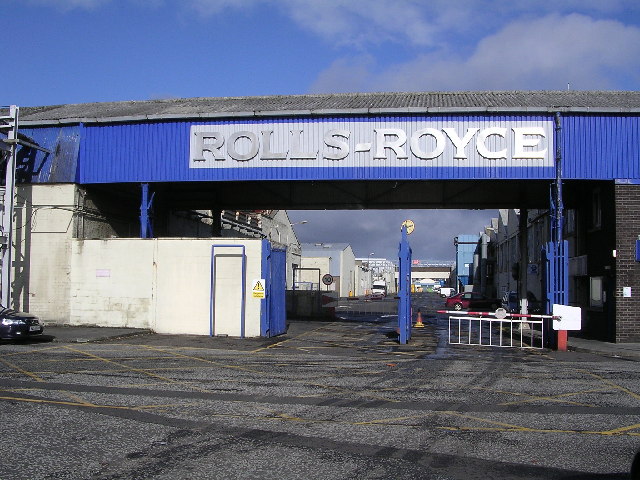Corporate governance is a complex idea that is often inappropriately simplified as a cookbook of recommended measures to improve financial performance. Many studies suggest that the supposed benign effects of these measures —independent directors or highly incentivised executives— are at best context specific. Corporate Governance in Contention explores and explains the meaning, purpose, and importance of corporate governance, with discussions centring on relationships within or specific to the firm, e.g. between labour, managers, and investors, and more general relationships that affect consumers or the environment. Many of the chapters examine alternatives to the shareholder value perspective and propose forms of stakeholding that can improve the work environment while encouraging investment, innovation and sustainable growth. In our second contribution in this series, Steen Thomsen takes a closer look at firms that are owned by foundations.
A number of highly successful companies around the world are owned by foundations. Examples include world-class companies such as Bertelsmann, Heineken, Ikea, Robert Bosch, Rolex, the Tata Group, and Carlsberg. The so-called “industrial foundations” that own them are nonprofit institutions which typically combine business ownership and philanthropy, but give priority to the business goal. Foundation ownership is particularly common in Denmark and Sweden, where absurdly high wealth taxes historically encouraged business owners to seek non-standard ownership firms.
The advantages prevail
How does foundation ownership influence company performance? Does non-profit ownership lead to lower profitability, stock market performance or sales growth, as agency theory would predict? After all foundation-owned companies do away with personal profit incentives and dispersed stock ownership. In Chapter 4 of Corporate Governance in Contention, I review the empirical evidence. On balance, foundation-owned companies appear to be about as profitable as investor- or family-owned businesses and to have similar stock market valuations and shareholder returns. However, they do grow slower, in part because they do not want to dilute their ownership and they engage in fewer mergers and acquisitions.
Moreover, foundation-owned companies appear to perform better on other accounts. For example, they survive longer. They takes less risk. They treat their employees better – pay them more, retain them for longer and engage more in work-life balance. And of course, they donate their surplus to charity rather than paying it out to investors.

A model for the US and the UK?
This raises the question of whether foundation-ownership should be allowed in countries like the US and UK where they are currently forbidden. France has already changed its regulation and now allows foundation ownership of business companies. This should be a wakeup call for the regulators in the UK, whose population and politicians appear to be fed up with excessive capitalism.
Foundation-ownership is uniquely suited for business owners who want to preserve core values and business principles, which are easily diluted by profit incentives. The founders can enshrine such values in the foundation charter which foundation board members (trustees) must adhere to.
It needs new laws and institutions
To prevent abuse, it will be necessary to design a new body of law similar to the Danish law on industrial foundations and the law on taxation of industrial foundations. Foundation law should ensure that donations to foundations are irrevocable and that foundations cannot in return donate to the founders or their family. The foundations should have independent boards and be monitored by a government agency like the UK Charity Commission, to which they should submit audited annual reports.
Subsidizing foundations would probably be a bit too much. It would breach tax neutrality which encourages business owners to choose the ownership structure that they believe is best for the company. For example, foundation ownership appears to be more beneficial for the continuation of mature businesses than for start- ups. But the current prohibition is in itself a breach of contractual freedom.
Permitting industrial foundations would not change British or American corporate governance overnight. It is a huge sacrifice for founders to give away most of their wealth to a foundation. But the examples of Bill gates, Warren Buffet and other philanthropists show that it is not impossible. Moreover, it is likely that more business owners would choose to donate if they could do so without the risk of losing control to opportunistic shareholders. So in all likelihood a few business owners would establish industrial foundations, which would have a demonstration effect on the business community. For-profit business would probably rediscover that high-powered incentives are less necessary than they thought and that commitments to stakeholders can add substantial value.
References:
Steen Thomsen (2018) ‘Foundation Ownership and Firm Performance: A Review of the International Evidence’, in Ciaran Driver and Grahame Thompson (eds) Corporate Governance in Contention, Chapter 4, OUP.
For background research, see Steen Thomsen (2017) The Danish Industrial Foundations. Copenhagen: DJOEF Publishing, Copenhagen. Amazon: https://www.amazon.com/Danish-Industrial-Foundations-Steen-Thomsen/dp/8757436894.
Steen Thomsen is Professor of Corporate Governance at Copenhagen Business School.





